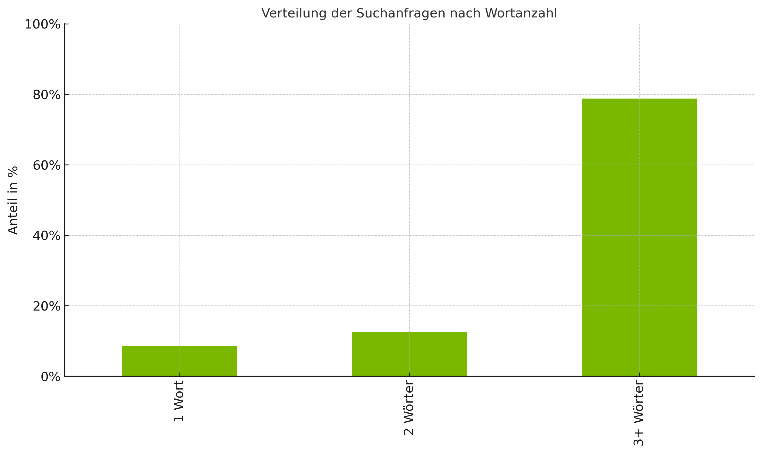
Global Visibility in the Age of AI: How SEO Is Changing
The Future of SEO: How Companies Can Adapt to a Changing Search Landscape
AI-driven search experiences, changing user behavior, and emerging technologies are transforming the way companies appear in search results. As a digital marketing agency, we help businesses navigate this shift and maximize their visibility. In this article, we’ll explore how the SEO ecosystem is changing, what it means for businesses, and how they should respond to stay competitive.
How Is the SEO Ecosystem Evolving?
Search engines are moving away from traditional keyword-based rankings and increasingly focusing on context-rich, AI-generated answers. A prime example is Google’s Search Generative Experience (SGE), which delivers AI-powered responses directly within search results. Moreover, new AI search assistants like Perplexity AI and Microsoft Copilot are reshaping search behavior by offering real-time answers with source citations, rather than a list of web pages.
To remain relevant, companies must adapt their SEO strategies by creating valuable, in-depth, and well-structured content that aligns with these new search algorithms.
Here’s a comparison of how AI-driven search platforms like Perplexity AI differ from traditional search engines like Google:
| Criteria | Perplexity AI | |
|---|---|---|
| Answer Type | Direct AI-generated answers | Ranked list of web pages |
| Search Method | AI-driven, real-time answer generation | Index-based, keyword-driven search |
| Accuracy & Citations | High accuracy with source references | Varies, depending on SEO ranking |
| User Interaction | Interactive with contextual refinement | Traditional search requiring browsing |
| Result Format | Summarized answers with sources | List of links with snippets |
| Search Speed | Fast through AI optimization | Fast, but depends on indexing |
| Answer Type | Direct AI-generated answers | Wide range, including ads and SEO content |
| Search Method | AI-driven, real-time answer generation | Limited personalization via search history |
Source: Capital – AI Search: Google Challenger Perplexity Grows Rapidly
What Does This Mean for Businesses?
As AI-generated responses take up more space on Search Engine Results Pages (SERPs), organic rankings are becoming less visible. Studies suggest that the click-through rate (CTR) for traditional search results could drop by up to 64%, as users increasingly get their answers directly from AI summaries.
Another clear indicator of this shift is the explosive growth of AI-powered search platforms like ChatGPT. While traditional search engines like Google still dominate traffic, AI search tools are gaining traction fast. As of April 2024, ChatGPT surpassed 10 million monthly visits, highlighting the rising user preference for AI-driven search experiences.
The Evolution of Online Search After ChatGPT
Explore the transformative impact of generative AI
How Should Businesses Respond?
To adapt to the changing SEO landscape, businesses must shift their focus to high-quality, expert-driven content, rather than just keyword optimization.
Key priorities include:
- Adhering to Google’s E-E-A-T framework (Experience, Expertise, Authoritativeness, Trustworthiness) to boost credibility and ranking.
- Multisearch optimization, using a mix of text, images, and video to improve visibility across various formats.
- Prioritizing structured data and featured snippets to appear in AI-generated answers—crucial in an era of zero-click searches.
- Keeping an eye on third-party platforms, as many AI systems source content from portals like Wikipedia, Reddit, and directories—often bypassing company websites.
How Can We Support Your Business?
As a digital marketing agency, we offer holistic solutions to prepare your business for the evolving SEO ecosystem. Our services include:
- Development of AI-optimized content tailored to both Google and AI search models
- Featured snippet strategies to ensure visibility despite SGE responses
- Ongoing SEO strategy refinement in line with the latest algorithm updates
- Multichannel SEO to strengthen presence across both traditional and AI-powered search platforms
Why Partner with Us?
As AI reshapes the search landscape, businesses need proactive and innovative SEO strategies to maintain visibility and relevance. Our team stays ahead of industry trends and continuously refines our approach so our clients stay ahead of their competition.
Whether it's enhancing content quality, aligning with AI-based search algorithms, or leveraging new technologies—we deliver tailored digital marketing solutions that drive real results.
Ready to Future-Proof Your SEO Strategy?
Search is evolving—but companies that adapt now will be the winners tomorrow. If you're ready to take your SEO to the next level and stay one step ahead in the age of AI-powered search, get in touch with us today—and let’s build a strategy for sustainable success, together.
